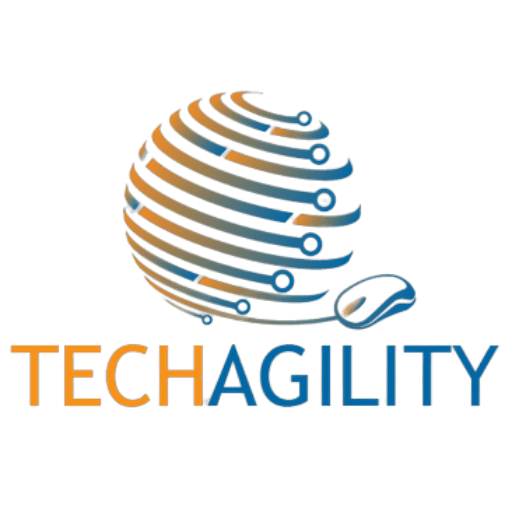
Close


The information technology industry is booming in the United States. As per the U.S. Bureau of Labor Statistics, employment in computer and IT occupations is projected to grow 13 percent from 2020 to 2030, adding about 667,600 new jobs.
With such promising career prospects, it’s no surprise that many are looking to gain the skills needed to break into this field. While IT encompasses a vast array of roles and specializations, foundational courses provide critical knowledge applicable across the industry.
In this blog, we will explore some of the best IT courses in USA and information technology course outline. Whether you’re looking to switch careers or advance your current role, quality IT education can equip you with in-demand technical abilities and empower your success in technology.
Before we dive into the top course options, let’s first understand why IT training is worthwhile for aspiring technology professionals.
universities in the USA , guest speakers, and fellow students. These relationships can lead to internships, mentors, and job referrals.
Now, let’s look at some of the top IT training options available in 2023.
An information technology foundation course provides broad-based knowledge, laying the groundwork for various technology career paths. It equips learners with essential concepts and perspectives for entering the IT field.

What does a foundational IT course typically cover?
● IT fundamentals – computer architecture, operating systems, networking, security
● Programming – languages like Python, Java, SQL, HTML, JavaScript
● Data skills – working with databases, fundamental data analysis
● Problem-solving – computational thinking, agile development
● Industry overview – IT career paths, real-world applications
An intense IT foundation course should teach both technical hard skills and soft skills like communication, collaboration, and critical thinking. Hands-on projects and exercises allow applying concepts to tackle problems.
This well-rounded base of knowledge and abilities enables the pursuit of specialized IT education. It also improves employability for entry-level roles like IT support, programming, data analysis, and more.
How long does information technology Courses take
IT courses range in duration from a few weeks to over a year. The length depends on the scope and depth of education. Here are typical timeframes:
● Short courses (2 weeks to 3 months) – Introduce specific concepts like a programming language, cloud platform, or certification prep.
● Foundation courses (3 to 6 months) – Provide well-rounded IT knowledge and skills for beginners. Prepares for junior roles.
● Immersive programs (6 to 12 months) – Comprehensive training like coding boot camps and cybersecurity degrees. Develop intermediate to advanced abilities.
● Multi-year degrees (2 to 4 years) – In-depth IT education combining technical and general education. Leads to bachelor’s or master’s degrees.
When choosing course duration, consider your prior experience and target job role. Shorter training works well if upskilling within your field, while more extended education enables a career change. Financial factors like tuition costs may also influence program length.
Professionals with busy schedules may prefer part-time foundation courses spanning 6 months rather than intense 3-month boot camps requiring full-time effort. Online platforms now offer flexible pacing options as well.
IT Course Curriculum Overview
While individual courses vary, most IT curriculums cover similar core concepts and competencies. Here’s an overview of what’s typically included:
Technical Knowledge
● Computer architecture
● Operating systems
● Networks and security protocols
● Cloud computing platforms
● Coding languages and frameworks
● Database management
Hands-on Skills
● Programming
● Web development
● Mobile app development
● Data analysis
● IT support and troubleshooting
● Cybersecurity tools
Business Perspectives
● I.T. systems design
● Project management
● Product development processes
● Understanding business needs
Soft Skills
● Communication and Collaboration
● Problem-solving
● Critical thinking
● Self-motivation and discipline
Reputable I.T. education develops both complex technical abilities and soft skills. Market-relevant curriculum and experienced instructors set learners up for success.

Now, let’s look at some of the best I.T. courses available for launching a technology career. Whether you’re interested in programming, data, IT support, or other roles, quality training tailored to beginners can get you started.
Here are the top options:
Coding Bootcamps
Immersive coding boot camps teach programming languages and web development frameworks through intensive, hands-on training. Popular options include:
Bootcamps accelerate learning through real-world projects. These skills prepare me for developer roles like software engineering. Programs typically run 3 to 6 months full-time or 6 to 12 months part-time.
Cybersecurity Courses
Cybersecurity education teaches tools and best practices for protecting systems and data. Course topics may cover:
Entry-level cybersecurity roles include security analyst, network admin, and security engineer.
Data Analytics Courses
Data analytics training develops abilities to collect, process, analyze, and visualize data. Courses teach:
Beginners can become data analysts, business analysts, and database admins.
IT Support Courses
IT support courses prepare for roles in maintaining computer systems and providing technical assistance. Training covers:
Entry-level jobs include IT help desk technician, desktop support, and computer support specialist.
Project Management Courses
Project management involves planning and leading IT initiatives. Introductory education provides foundations in:
Early-career project coordinators and managers can benefit from PM fundamentals.
For each role, look for beginner-friendly courses that don’t expect technical experience. Focus on developing core competencies to qualify for junior positions.
With many course options now available, it’s essential to choose reputable providers. Here are key factors to assess:
Vetting providers upfront ensures effective education that fully prepares you for IT career success.
Demand for qualified IT professionals continues rising rapidly for the best IT courses in USA. Foundational IT courses allow the launching and advancement of technology careers for beginners.
Choose training matched to your interests like programming, cybersecurity, data, or IT support. Look for providers emphasizing hands-on learning, career development, and flexibility.
Quality IT education equips you with the knowledge, tools, and connections to thrive in technology roles. The skills empower you to deliver value in virtually any industry.
Ready to write your IT career success story? The journey starts with finding the proper training tailored to beginners. Enroll in one of the best IT courses in USA today!